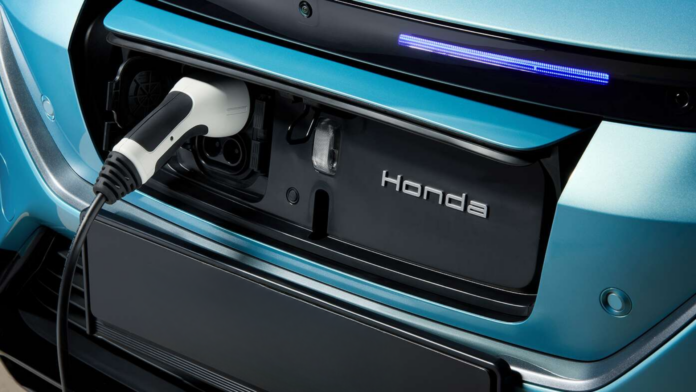Honda Motor announced on Tuesday that it is scaling back its investment in electric vehicles (EVs) in response to weakening demand, and will instead pivot toward hybrid vehicles, which are currently seeing stronger consumer interest.
Japan’s second-largest automaker, after Toyota, has withdrawn its previous target of making EVs account for 30% of total sales by the 2030 financial year. “It’s really hard to read the market, but at the moment we see EVs accounting for about a fifth by then,” said CEO Toshihiro Mibe during a press conference.
As part of the strategic shift, Honda has reduced its planned investment in electrification and software by 30%, cutting the total to 7 trillion yen (approximately $48.4 billion).
Honda is among several global automakers reevaluating their EV strategies as hybrid demand surges and governments adjust emission timelines. For instance, in the U.S., President Donald Trump recently revoked a Biden-era executive order that aimed to make all new vehicle sales electric by 2030.
Looking ahead, Honda plans to launch 13 next-generation hybrid models globally between 2027 and 2030. Currently, the company offers over a dozen hybrid models worldwide, including just three in the U.S.—the Civic (both hatchback and sedan), the Accord, and the CR-V.
In addition, Honda will develop a new hybrid system for large-sized vehicles to be introduced in the latter half of the decade. The company is aiming to sell between 2.2 million and 2.3 million hybrid vehicles annually by 2030, a significant jump from the 868,000 hybrids sold last year. Honda sold a total of 3.8 million vehicles globally in 2024.
Earlier this month, Honda also paused a C$15 billion ($10.7 billion) project to build an EV production base in Ontario, Canada, delaying the plan by about two years due to declining EV demand.
Despite the shift, Honda reaffirmed its long-term commitment to electrification, stating it still plans for all new vehicle sales to be either battery-electric or fuel-cell powered by 2040.
Other automakers scaling back EV investments include Nissan, which recently scrapped a $1.1 billion battery plant project in Kyushu, and Jaguar Land Rover, which reportedly halted plans to manufacture electric vehicles at Tata Motors’ upcoming $1 billion factory in southern India.




